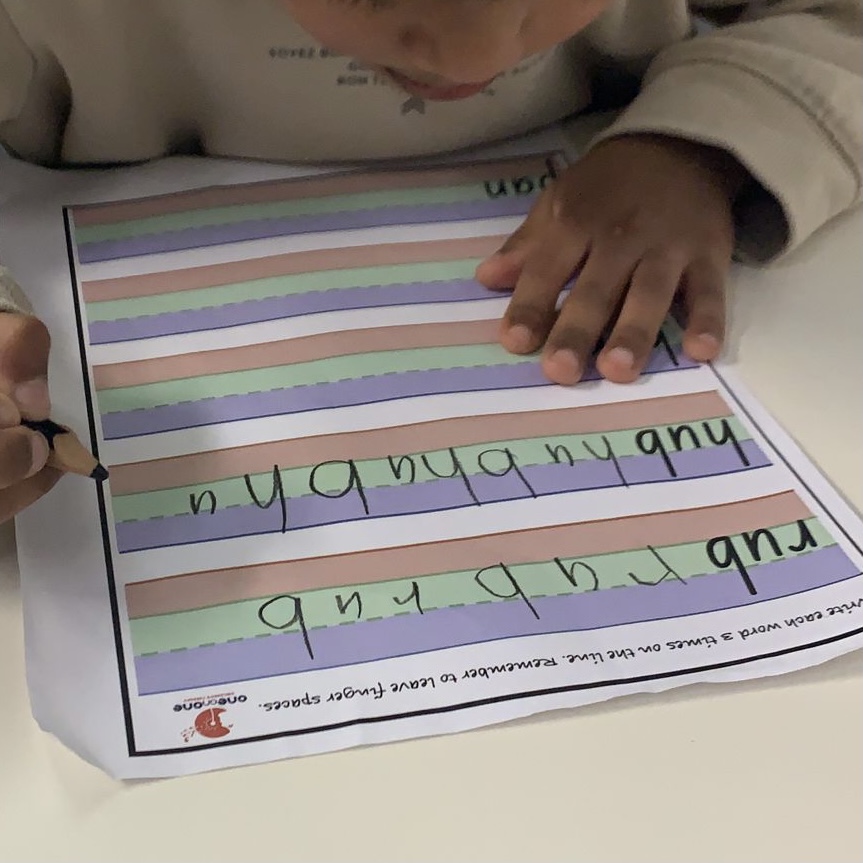
Recognising and Addressing Poor Handwriting in Children: A Guide for Parents in Bondi Junction and Mascot
Handwriting is a fundamental skill that plays a crucial role in a child’s academic success and self-expression. As children progress through their schooling, difficulties with handwriting can surface, impacting their confidence and ability to convey thoughts effectively on paper. Identifying signs of poor handwriting early on allows parents, teachers, and therapists to intervene promptly, providing necessary support and strategies to help children overcome these challenges.
Signs of Poor Handwriting in Children
Illegible Writing
One of the most noticeable signs of poor handwriting is illegibility. Children may struggle to form letters consistently and accurately, leading to writing that is difficult to read. Letters may appear poorly formed, inconsistently sized, or even reversed, making it challenging for others to decipher their written work.
Inconsistent Letter Formation
Children with handwriting difficulties often exhibit inconsistent letter formation. This includes irregular spacing between letters and words, uneven letter size, and frequent changes in writing style throughout a piece of work. Inconsistency in letter formation can affect the overall neatness and readability of their writing.
Mixed Upper and Lower Case
When children first start writing, they may mix upper and lower case letters. However, if a child continues to frequently mix the letters up, especially when they use upper case in the middle of words, this can be a sign of a handwriting issue.
Slow or Laboured Writing
Children experiencing handwriting issues may write slowly compared to their peers. They may take longer to complete written assignments or homework tasks as they struggle to maintain the pace expected in academic settings. Slow writing can impact productivity and may lead to frustration or avoidance of writing activities.
Messy Writing
Messy writing is another common indicator of handwriting difficulties. Children may struggle with proper spacing between words, resulting in overcrowded or poorly organised text on the page. Messy handwriting can affect the presentation of their work and may lead to misunderstandings or misinterpretations of what the child wrote.
Difficulty Holding Writing Tools
Proper pencil grip is essential for efficient handwriting. Children with poor handwriting skills may exhibit difficulty holding writing tools correctly. They may struggle to maintain a stable grip, resulting in discomfort or fatigue during writing tasks. Incorrect pencil grip can impact handwriting speed, legibility, and overall writing stamina.
Avoiding Writing Tasks
Children who experience frustration or lack confidence in their handwriting abilities may actively avoid writing tasks. They may express reluctance or anxiety when faced with assignments that require extensive writing, preferring activities that involve less writing or alternative methods of communication.
Fatigue or Discomfort
Fatigue or discomfort during or after writing activities can signal underlying handwriting difficulties. Children may complain of tired hands or arms, cramping, or discomfort associated with prolonged writing tasks. These physical symptoms may indicate challenges with fine motor skills or muscle strength necessary for sustained writing efforts.
Difficulty Copying from the Board
Copying text accurately from the board or a book can pose significant challenges for children with poor handwriting skills. They may struggle to maintain attention and focus on the task, resulting in inaccuracies or omissions in their written work. Difficulty with copying tasks can impact their ability to keep up with classroom activities and may affect academic performance.
Addressing Handwriting Issues
Identifying signs of poor handwriting in children allows parents and teachers to take proactive steps to address these challenges effectively. Early intervention through assessment by a qualified occupational therapist or educational psychologist can provide valuable insights into the underlying causes of handwriting difficulties. Based on assessment findings, targeted interventions and strategies can be implemented to support the development of handwriting skills. Classroom modifications for handwriting should be considered. Handwriting is still an important skill that impacts many areas of development.
Occupational Therapy
Occupational Therapists specialise in addressing fine motor skills, visual-motor integration, and handwriting mechanics. They can provide personalised interventions and exercises to improve pencil grip, letter formation, and overall writing fluency.
Educational Support
Collaboration with teachers to implement accommodations, such as extra time for writing assignments or the use of assistive technology, can support children with handwriting challenges in the classroom.
Home Strategies
Creating a supportive environment at home, including ergonomic seating, adapted writing tools, and structured writing practice routines, can reinforce skills learned during therapy sessions.
Conclusion
By recognising the signs of poor handwriting early and seeking appropriate support and intervention, parents and educators can empower children to improve their handwriting skills and succeed academically. Every child’s handwriting journey is unique, and with patience, encouragement, and targeted interventions, children can gain confidence and proficiency in expressing themselves through writing. Children go through different stages to develop handwriting so it is important to understand where your child is up to.
How OneOnOne Children’s Therapy Can Help
If you’re concerned about your child’s handwriting, take action early with OneOnOne Children’s Therapy. Our handwriting program, ‘Writing Blocks,’ employs evidence-based interventions to comprehensively address letter formation. Starting from single letters and progressing to sentences, we build a solid foundation. Each step is carefully designed to support children in mastering handwriting skills, ensuring clarity and confidence in their written communication.
Contact Us Today
Located conveniently in Bondi Junction and Mascot, our clinics are dedicated to helping children overcome handwriting challenges. Call us at (02) 8065 7837 or email us to schedule an appointment. Our Occupational Therapists are AHPRA registered. You can also book a free 30-minute phone call to discuss your child’s needs and learn more about our programs.
Help your child develop the confidence and skills they need for academic success. Contact us today and see how we can make a difference!
